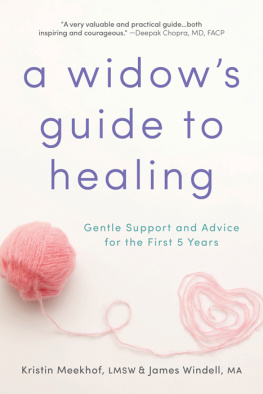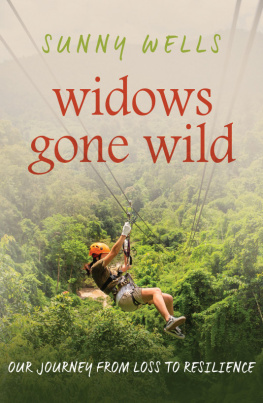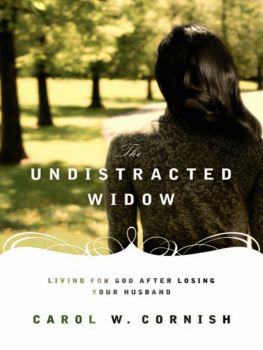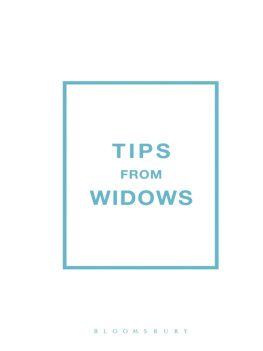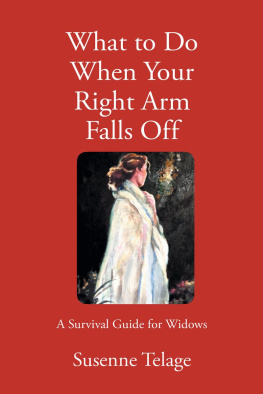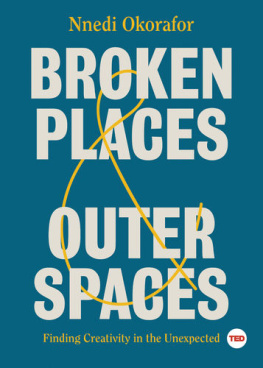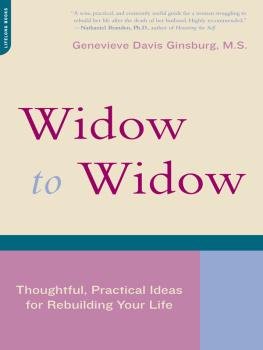Copyright 2015 by Kristin Meekhof and James Windell
Cover and internal design 2015 by Sourcebooks, Inc.
Cover design by Black Kat Design
Cover image Carafe/Plainpicture
Sourcebooks and the colophon are registered trademarks of Sourcebooks, Inc.
All rights reserved. No part of this book may be reproduced in any form or by any electronic or mechanical means including information storage and retrieval systemsexcept in the case of brief quotations embodied in critical articles or reviewswithout permission in writing from its publisher, Sourcebooks, Inc.
This publication is designed to provide accurate and authoritative information in regard to the subject matter covered. It is sold with the understanding that the publisher is not engaged in rendering legal, accounting, or other professional service. If legal advice or other expert assistance is required, the services of a competent professional person should be sought. From a Declaration of Principles Jointly Adopted by a Committee of the American Bar Association and a Committee of Publishers and Associations
Published by Sourcebooks, Inc.
P.O. Box 4410, Naperville, Illinois 60567-4410
(630) 961-3900
Fax: (630) 961-2168
www.sourcebooks.com
Library of Congress Cataloging-in-Publication Data
Meekhof, Kristin.
A widows guide to healing : gentle support and advice for the first 5 years / Kristin Meekhof, James Windell.
pages cm
1. Widowhood. 2. Widows--Life skills guides. 3. Adjustment (Psychology) I. Windell, James. II. Title.
HQ1058.M44 2015
2015013013
To all of the widows who generously shared their stories. And to the memory of my beloved husband, Roy; my courageous father, James Vande Vusse; and my loving grandparents, Ann and Howard Vande Vusse.
KM
To my patient, understanding wife, Jane, who I hope doesnt need this book for a long, long time.
JW
contents
introduction
feeling less alone
A NOTE FROM KRISTIN MEEKHOF
You may have found my book because your spouse died or because someone near and dear to you just lost her spouse. Either way, I hope this book will give you solaceand more importantly, hope. Though I dont know what circumstances led to your partners death, I know that you probably feel no one can relate to your pain. Ive been there myself. When I was thirty-three, my husband died unexpectedly. Although I have an undergraduate degree in psychology and a masters degree in clinical social work, little prepared me for my role as a caregiver when Roy was diagnosed with a rare form of cancer and passed away after a brief but valiant battle against it. But while I thought I wasnt prepared to be a caregiver, I quickly realized I was definitely not prepared to be a widow when he passed away. Suddenly, I was alone, scared, and filled with a deep sadness I thought would never end. As we didnt have any children together, I endured many unbearably long evenings where silence was the only thing filling my home. What kept playing over and over in my mind was that I was going to have to start over from scratch and I would have to cope with overwhelming challenges like anxiety and social isolation.
At the time, I was living in Michigan, and I remember going to bookstore after bookstore, buying whatever books I could find about grief and loss. In my mind, I knew there had to be a book that would tell me how I was going to get through everything I was facing. There are lots of these types of books, and Ive read an overabundance of them. Yet none of them were quite what I was looking for. I wanted a book that spoke to me about what to expect as a widow, what I would feel not only the first year after my husband died, but also several years following his funeral.
I knew what it was like to experience griefafter all, my father had passed away when I was five. But this time, when I lost my beloved husband, it was different. Everything was darker. I soon discovered what all widows learn: at the very moment you are stripped of your life partner and left numb and grieving, you must make crucial decisions that will affect the rest of your life. Finances, family alliances, estates, legal matters, sudden single parenthood, career changeswidows are in no mental state to grapple with these challenges, and yet they must. They need a blueprint that spells out exactly what to do. But nothing like this existed.
My coauthor, psychologist James Windell, and I had worked together before Roys death, and Roy and I had spent time together with James and his wife outside of work. After I lost Roy, James and I began talking about a book for widows. We talked about how losing a spouse is a nearly universal experience, and yet it leaves every widow feeling utterly alone. But given the myriad grief guides out there, what kind of book could we write that would offer something new and hopeful?
Initially, we were stumped. Since my husbands death, I have rebuilt my life and dedicated a large part of it to writing about widowhood. In addition to my column about transformation through loss and healthy living on the Huffington Post , I contribute to various other websites and host my own site dedicated to helping widows. Feedback from widows and from readers on the Huffington Post convinced both of us that widows need a different kind of book, one that helps them through the practical challenges of widowhood while providing comfort and advice from other widows who have survived the ordeal themselves. Over months of talking, the concept and the vision of this book slowly came together.
It became the blueprint Id been looking for since my own husband had passed away.
What we decided was that this book should offer a gentle guiding hand to the widow struggling with fresh grief and then walk her through the difficult first years of widowhood. But beyond that, we agreed, widows need to know that grief knows no particular time line, and that the process can be a long onesometimes lasting five or six years or more. However, right from the beginning of the book, our focus is on steering widows through the agonizing weeks after a spouses death and then into the longer term. The book provides detailed, week-by-week to-do lists of vital tasks to take care of in the first month, when new widows are typically shell-shocked and mentally foggy. It also tackles difficult situations and issues that widows often dont even think about until they find themselves in those situations: being a widow in the workplace, being a sudden single parent, dealing with in-laws and extended family, and so on. With honesty and compassion, we try to describe the range of experiences a widow will face after the loss of a spouse.
On top of that, weve included snippets from the lives and experiences of other real widows as well as practical advice on what to expect and how to manage in the first days, weeks, months, and years after loss. While you may not know the widows in these pages, we hope that each of their voices will come across as a friend talking to youa friend who unfortunately understands what you are going through, your feelings about your loss, your stressors, and your fears. Our goal is that reading this book will make you feel less alone, that it will help you get back on your feet and begin to heal, and that you may gain some additional life knowledge that will help you for years down the road.
Since I faced the same loss you are going through, I use my voice to describe some of the things I experienced. When you see the pronoun I, you will know that this is my voice. There are times when Jim, as a psychologist, writes, and we try to make it clear that he is the writer of these passages. My personal reflections and Jims perspective and analysis are joined by the voices of over one hundred widows ages twenty-five to eighty, whom we interviewed about their experiences, and whose memories and insights provide comfort and support. We believe that the sisterhood in these pages will assure you that you are not alone and that you can survive this terrible loss. By the end of the book, you will understand how to get your bearings, take control of your life, and create a game plan for the coming years.

